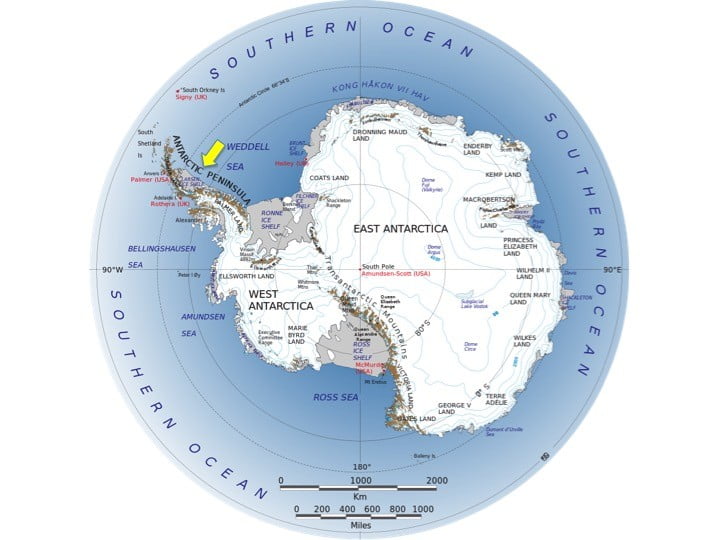Antarctica is the largest desert in the world.Antarctica, fifth in size among the world’s continents. Its landmass is almost wholly covered by a vast ice sheet.
Antarctica Guide and Informations
Antarctica is the coldest, windiest, highest and driestcontinent on Earth.Admiral Fabian Gottlieb von Bellingshausen was one of the first to spot the continent of Antarctica. The first land south of the parallel 60° south latitude was discovered by the Englishman William Smith, who sighted Livingston Island on 19 February 1819.Admiral Fabian Gottlieb von Bellingshausen was one of the first to spot the continent of Antarctica. The first land south of the parallel 60° south latitude was discovered by the Englishman William Smith, who sighted Livingston Island on 19 February 1819.The people who travel to or live in Antarctica fall into two main groups, those wholive and work on scientific research stations or bases, and tourists. No-one lives inAntarctica indefinitely in the way that they do in the rest of the world. It has no commercial industries, no towns or cities, no permanent residentsAntarctica is important for science because of its profound effect on the Earth’s climate and ocean systems. Locked in its four kilometre-thick ice sheet is a uniquerecord of what our planet’s climate was like over the past one million years1820: In January, Russian Fabian Gottlieb von Bellingshausen becomes the first person to see the Antarctic continent (January 27). 1820: In November, American Nathaniel Palmer, on the HERO, claims to see the Antarctic Peninsula. Palmer was a member of a sealing fleet from New EnglandAmong the original signatories of the Antarctic Treaty were the seven countries –Argentina, Australia, Chile, France, New Zealand, Norway and the United Kingdom – with territorial claims to parts of Antarctica, some overlapping.
Who Owns Antarctica?
No country or nation is a recognized ‘owner’ of Antarctica but several nations do claim pie-shaped slices of the continent. Thanks to an international treaty signed in 1959, only one thing rules Antarctica – science. The treaty signed back then froze new territorial claims, banned military activity, weapons testing, and made Antarctica off-limits for nuclear testing. One thing the treaty did allow for was scientific research. 47 nations have ratified the treaty and any nation is free to do scientific research as long as they share their research with the rest of the world. Later amendments to the treaty sought to cover Antarctica’s natural resources.

Lot of people asking us “do you need a Visa to visit Antarctica?”
In retrospect it’s a significant question, and instead of reply to innumerable e-mails on the topic weeklyconcerning how you’ll be able to do antarctica for reasonable or backpack to continent, we tend to thought a brand new post would assist you to grasp higher. 1st 2 things:
1. You don’t need a visa to go to antarctica
2. there’s no immigration or border management on entering antarctica.
Because no country owns Antarctica, no visa is required. However, the countries that signed the Antarctic Treaty’s Protocol on Environment Protectionrequire that visitors from those countries (including the USA, Canada, EU and Australia) need permission. This is nearly always through tour operators.
However to get to antarctica you’ll be in either: Chile, Argentina, south africa, Australia or New island (so please do check if you wish a visa for any of theseplaces!!).
Here is what you do need to visit continent: most of the tour teams that move to Antarctica can ask for the following, therefore have them prepared previous your trip:
1. a valid passport with six months to run (for registration and identification functions only)
2. Some kind of travel insurance that covers you for the period of your trip (I hate buying travel insurance butit’s essential for this trip)
3. Tell the tour company your people (in case of medical emergency)
4. Tell the tour company your next of kin (in case of medical emergency)
Antarctica International Airport
As a rule you must continuously carry United States dollars. you’ll use them on board the ship and at all museums and bars etc. in Antarctica. but Euros will be accepted in most places. At British people Base Port Lockroy, you’ll pay in British pounds. that I did as I had some on ME.Unsurprisingly Antarctica has no official currency, no official banks and in and of itself no official physical banknotes.
What Other Proof Can you get to say you went to Antarctica?
Our tour organised 2 certificates for us which make decent framed items:
1. A certificate to confirm I had stepped foot on Mainland Antarctica:
2. A certificate issued to swimmers only to confirm that we had swam in the water of Antarctica. If you read my naked dip story, you’ll know I was in the water!A certificate to prove I swam in Antarctic Waters (although the videos and photos would suffice!).A certificate to prove I stepped foot on Mainland Antarctica.
What Nationalities can you expect to meet on an Antarctica Trip?
On our trip there were people on board from the following countries:
United States of America, Argentina, Chile, Canada, Switzerland, Austria, Belgium, Northern Ireland, England, Scotland, Republic of Ireland, Hong Kong, Israel, Australia, New Zealand, Vietnam, Philippines, Italy, Germany, France, Brazil, Poland.
The Argentine, British and Chilean claims all overlap, and have caused friction. On 18 December 2012, the British Foreign and Commonwealth Office named a previously unnamed area Queen Elizabeth Land in tribute to Queen Elizabeth II’s Diamond Jubilee. On 22 December 2012, the UK ambassador to Argentina, John Freeman, was summoned to the Argentine government as protest against the claim.Argentine–UK relations had previously been damaged throughout 2012 due to disputes over the sovereignty of the nearby Falkland Islands, and the 30th anniversary of the Falklands War.
The areas shown as Australia’s and New Zealand’s claims were British territory until they were handed over following the countries’ independence. Australia currently claims the largest area. The claims of Britain, Australia, New Zealand, France and Norway are all recognised by each other.
Other countries participating as members of the Antarctic Treaty have a territorial interest in Antarctica, but the provisions of the Treaty do not allow them to make their claims while it is in force.
 Brazil has a designated “zone of interest” that is not an actual claim.
Brazil has a designated “zone of interest” that is not an actual claim. Peru has formally reserved its right to make a claim.
Peru has formally reserved its right to make a claim. Russia has inherited the Soviet Union’s right to claim territory under the original Antarctic Treaty.
Russia has inherited the Soviet Union’s right to claim territory under the original Antarctic Treaty. South Africa has formally reserved its right to make a claim.
South Africa has formally reserved its right to make a claim. United States reserved its right to make a claim in the original Antarctic Treaty.
United States reserved its right to make a claim in the original Antarctic Treaty.



 Main article: Territorial claims in Antarctica
Main article: Territorial claims in Antarctica












